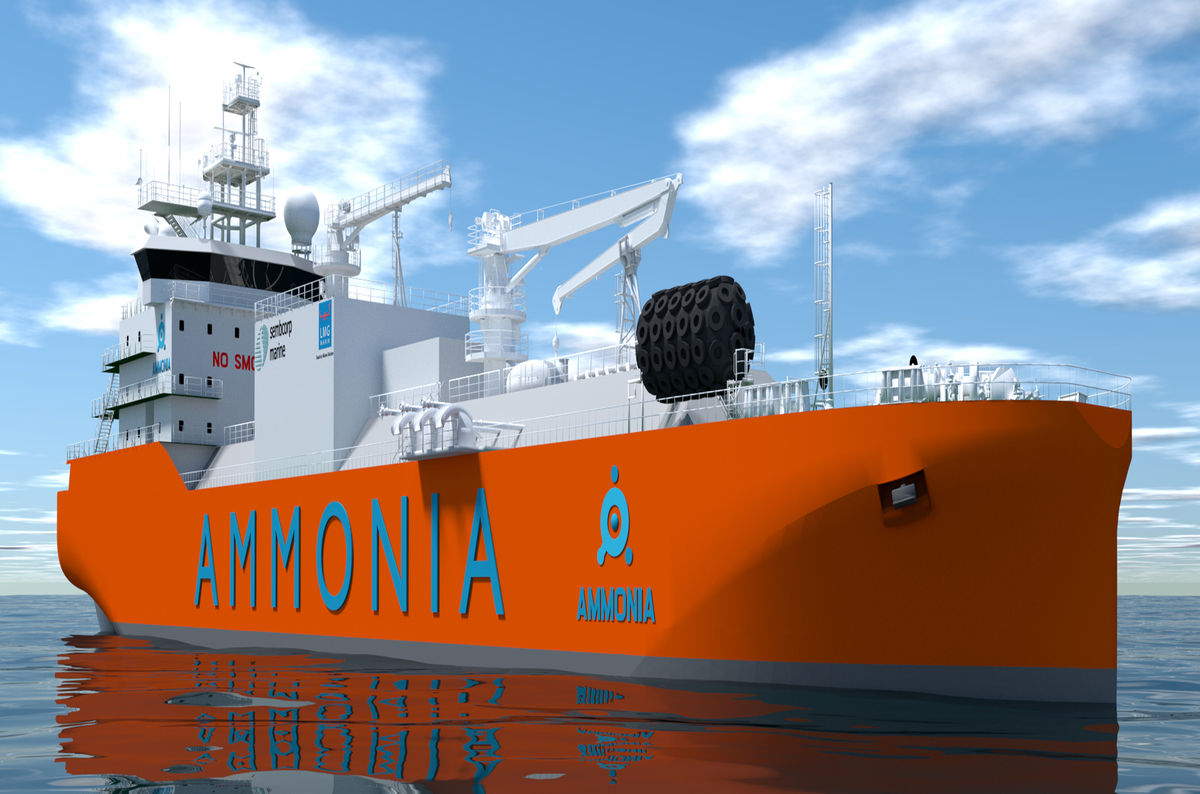IMO maps regulatory readiness of alternative fuels
"Ammonia, hydrogen, ethane and dimethyl ether (DME) are among the 'alternative' marine fuels which may need future regulatory work,” says the IMO.

PHOTO: Prototype of an ammonia-fuelled ocean-going LNG carrier. Mitsui O.S.K Lines
According to a new IMO study, there are currently no mandatory quality regulations for fatty acid methyl ester (FAME) and hydrotreated vegetable oil (HVO), which are used as blend-in biofuels on several vessels.
And there are no marine fuel quality requirements and environmental standards for assessing the environmental impacts of ammonia and DME, the study found. Hydrogen, ethane, LPG and ethanol are not yet subject to mandatory quality standards. The report concludes that regulations were needed to assess the environmental impacts of ethanol, methanol and LNG.
DME, or methoxymethane, is a synthetic alternative to diesel used in compression ignition diesel engines. It is possible to produce low-emission DME from synthesis gas produced from biomass or from methanol via dehydration reactions, according to the US Department of Energy. Its high cetane number can make it a suitable alternative to diesel as a pilot fuel.
The study was conducted by the Global Industry Alliance to Support Low Carbon Shipping (Low Carbon GIA) - a public-private alliance under the IMO’s scope. It evaluated regulatory frameworks around conventional and cleaner marine fuels such as biodiesel, synthetic diesel, methanol, ethanol, DME, LPG, LNG, ethane, ammonia and hydrogen.
By Konica Bhatt
Please get in touch with comments or additional info to news@engine.online






